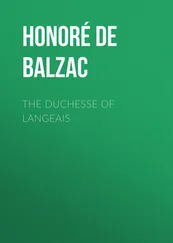Dino Dorothée - Memoirs of the Duchesse de Dino (Afterwards Duchesse de Talleyrand et de Sagan), 1836-1840
Здесь есть возможность читать онлайн «Dino Dorothée - Memoirs of the Duchesse de Dino (Afterwards Duchesse de Talleyrand et de Sagan), 1836-1840» — ознакомительный отрывок электронной книги совершенно бесплатно, а после прочтения отрывка купить полную версию. В некоторых случаях можно слушать аудио, скачать через торрент в формате fb2 и присутствует краткое содержание. Жанр: foreign_antique, foreign_prose, на английском языке. Описание произведения, (предисловие) а так же отзывы посетителей доступны на портале библиотеки ЛибКат.
- Название:Memoirs of the Duchesse de Dino (Afterwards Duchesse de Talleyrand et de Sagan), 1836-1840
- Автор:
- Жанр:
- Год:неизвестен
- ISBN:нет данных
- Рейтинг книги:4 / 5. Голосов: 1
-
Избранное:Добавить в избранное
- Отзывы:
-
Ваша оценка:
- 80
- 1
- 2
- 3
- 4
- 5
Memoirs of the Duchesse de Dino (Afterwards Duchesse de Talleyrand et de Sagan), 1836-1840: краткое содержание, описание и аннотация
Предлагаем к чтению аннотацию, описание, краткое содержание или предисловие (зависит от того, что написал сам автор книги «Memoirs of the Duchesse de Dino (Afterwards Duchesse de Talleyrand et de Sagan), 1836-1840»). Если вы не нашли необходимую информацию о книге — напишите в комментариях, мы постараемся отыскать её.
Memoirs of the Duchesse de Dino (Afterwards Duchesse de Talleyrand et de Sagan), 1836-1840 — читать онлайн ознакомительный отрывок
Ниже представлен текст книги, разбитый по страницам. Система сохранения места последней прочитанной страницы, позволяет с удобством читать онлайн бесплатно книгу «Memoirs of the Duchesse de Dino (Afterwards Duchesse de Talleyrand et de Sagan), 1836-1840», без необходимости каждый раз заново искать на чём Вы остановились. Поставьте закладку, и сможете в любой момент перейти на страницу, на которой закончили чтение.
Интервал:
Закладка:
Valençay, August 29, 1836. – M. de Talleyrand ought to regard the accidents that happen to him without disastrous results as a guarantee that his life is certainly assured, and in my place I think that this warning would rather turn my thoughts upon what they portend and induce me to thank God for the respite granted to lighten our burden of responsibility. Sometimes he reflects upon death, but not often. Yesterday evening there was a violent storm which threatened the Castle. After a loud clap of thunder he asked me what I had been thinking of at that moment, and I immediately replied: "If a priest had been in the room I should have confessed myself, for I am afraid of sudden death. To die unprepared and to carry with me my heavy burden of sin is a terrifying prospect, and however careful one may be to live well we cannot do without reconciliation and pardon." M. Cogny, our doctor, who was there, and who is terribly afraid of thunderstorms, added somewhat foolishly that he was performing an act of contrition at every flash. M. de Talleyrand said nothing at all, and we went on playing piquet. I take every opportunity of strengthening my belief, and thus attempting to arouse his, but never until I have an opening. In such a matter a light touch is indispensable.
Yesterday I had a long, interesting letter from the Duc d'Orléans, and a letter which I think the more satisfactory as he has returned to more reasonable opinions upon the Spanish question. His opinion of the Ministerial crisis corresponds entirely with my own. I have also a letter from M. Guizot written from Broglie on August 24. When writing he had no news of the resignation of Thiers, which took place on the 25th. He informs me that he has just bought a small estate near Lisieux and is going to turn farmer. 44 44 This estate was the Val Richer, where M. Guizot lived until his death.
I presume that I shall next hear that he has left the plough to resume the pen and speechifying.
Valençay, September 1, 1836. – I am strongly inclined to accede entirely to the opinion concerning the Emperor Nicholas which states that the only royal quality in his possession is personal courage. His chief deficiency seems to me to be that of intelligence, not only in conversation and judgment, but in general.
M. de Montessuy, who accompanied M. de Barante to an entertainment at Peterhof and passed the night there, writes that he saw the Empress at a distance in the gardens and respectfully withdrew, but that in the evening she reproached him for so doing, saying that she had come down in order to speak to him and that it was wrong of him to avoid her. All this story seems to me to be very unlikely.
Madame Adélaïde writes to M. de Talleyrand on August 30 that nothing has yet been done with regard to the Ministry. M. Molé has opened communications with MM. Guizot and Duchâtel, both of whom have arrived at Paris, but unanimity between them is rendered difficult by their respective sense of dignity. The King and Madame seem greatly to regret their forced separation from the retiring Ministers and the necessity of calling in others.
Valençay, September 3, 1836. – Yesterday I learned a piece of news which is causing me much anxiety and is likely to involve me in embarrassment: the death of my man of business in Germany, Herr Hennenberg, who died at Berlin on August 23. I am thus obliged to replace a most upright and capable man, a strong and respected character who had full knowledge for twenty-five years not only of my business, but of all my intimacies, past and present, who has thrown himself heartily into every interest of my life and performed immense services, and, in spite of the many pecuniary shocks which I have experienced, has restored my fortunes and brought them to visible prosperity, often to my own astonishment. He was, in short, a man to whom I had entirely handed over the control of my affairs, as, indeed, was necessary, in view of the long distance which separates me from the centre of my interests. Such a man cannot be replaced by correspondence or blindly, nor can I remain in uncertainty and unsettlement for any length of time without suffering incalculable loss. Hence a journey to Germany seems an absolute necessity; but, on the other hand, how can I leave M. de Talleyrand alone in view of the present state of his health? It is not to be thought of, and I pray that Providence may deliver me from this inextricable complication.
Letters from Paris say that attempts to form a Ministry are so many successive failures, that the King is growing tired of it, and that Thiers is beginning to say that Spain is past all remedy. Perhaps they will end in patching the matter up, but the shock that each party has received will weaken their harmony, apart from the paralysing sense of mistrust and rancour which will remain. It is all very sad.
Valençay, September 4, 1836. – We have letters daily from Paris, but no word regarding any solution of the difficulty. Yesterday I thought the breach might be healed; I am less inclined to think so to-day. It is even possible that the journey to Fontainebleau may take place before the reconstruction of the Cabinet. M. Thiers would like to start for Italy, to which the King has replied that his resignation will be accepted only when he has nominated a successor. Molé and Guizot are possibilities which seem to be exhausted without result.
Valençay, September 7, 1836. – We are told that the Moniteur of to-day will contain the names of a Guizot-Molé Ministry, recruited entirely from among the Doctrinaires under the influence and by the efforts of M. Guizot. I had a letter from M. Thiers yesterday, and am sorry to see some ill-temper displayed against all who do not share his ideas about that wretched Spanish question. In particular he thinks that the signatories to the Quadruple Alliance should have agreed with him. This remark is addressed to M. de Talleyrand, who proposes to reply that a fresh reading of the treaty will show that it was drawn up in such a way that France is not under obligation in any direction. M. Guizot persisted in objecting to the retention of M. de Montalivet as Minister of the Interior, and as the latter thought it inconsistent with his dignity to leave this post for another, as Guizot had proposed, he has resigned, to the King's great regret, and will go to Berry, where he has property. Sauzet and d'Argout are said to be going to Italy, once the refuge of dethroned Sovereigns and now the inevitable touringground of ex-Ministers.
The following fact is certain: On the 4th of this month information was received that the Société des Familles , the most numerous and best organised of secret societies at this time, proposed to make some attempt to raise a public disturbance. Their intention was perfectly clear; the fear of discovery doubtless prevented them from putting it into effect. They proposed to advance upon the prison where the political prisoners are confined, to set them at liberty, to seize the Prefecture of Police, and thence to march upon Neuilly. The Ministers assert that their intentions were quite serious.
Valençay, September 9, 1836. – The newspapers are already declaring a terrible war upon the new Ministry, which will be settled before the Chambers. 45 45 The Ministry was composed as follows: M. Molé, President of the Council and Minister of Foreign Affairs; M. Guizot, Minister of Public Instruction; M. Persil, Minister of Justice; M. Duchâtel, Financial Minister; M. de Gasparin, Minister of the Interior, with M. de Rémusat as Under-Secretary of State; M. Martin du Nord, Minister of Commerce and Public Works; General Bernard, Minister of War; and Admiral Rosamel, Minister of Naval Affairs.
The Opposition journals predict a breach in the Cabinet, which seems a not unlikely possibility. Then perhaps we shall see M. Thiers return to the head of affairs, but with a certain opposition to confront him, after making war upon a system which he had long supported and entering into obligations with men inclining to the Left, in which case he would be likely to draw the Government into dangerous paths. I do not really know, but in general things seem to me to be growing dark. In any case it is fair to recognise that the new Ministerial combination can display to the country and abroad honourable names, distinguished talent, and recognised capacity. Let us hope, then, that it may rest upon a solid basis. Eight or ten days before the last crisis M. Molé, after a considerable silence, wrote a very sprightly letter to M. Royer-Collard and to myself.
Интервал:
Закладка:
Похожие книги на «Memoirs of the Duchesse de Dino (Afterwards Duchesse de Talleyrand et de Sagan), 1836-1840»
Представляем Вашему вниманию похожие книги на «Memoirs of the Duchesse de Dino (Afterwards Duchesse de Talleyrand et de Sagan), 1836-1840» списком для выбора. Мы отобрали схожую по названию и смыслу литературу в надежде предоставить читателям больше вариантов отыскать новые, интересные, ещё непрочитанные произведения.
Обсуждение, отзывы о книге «Memoirs of the Duchesse de Dino (Afterwards Duchesse de Talleyrand et de Sagan), 1836-1840» и просто собственные мнения читателей. Оставьте ваши комментарии, напишите, что Вы думаете о произведении, его смысле или главных героях. Укажите что конкретно понравилось, а что нет, и почему Вы так считаете.












